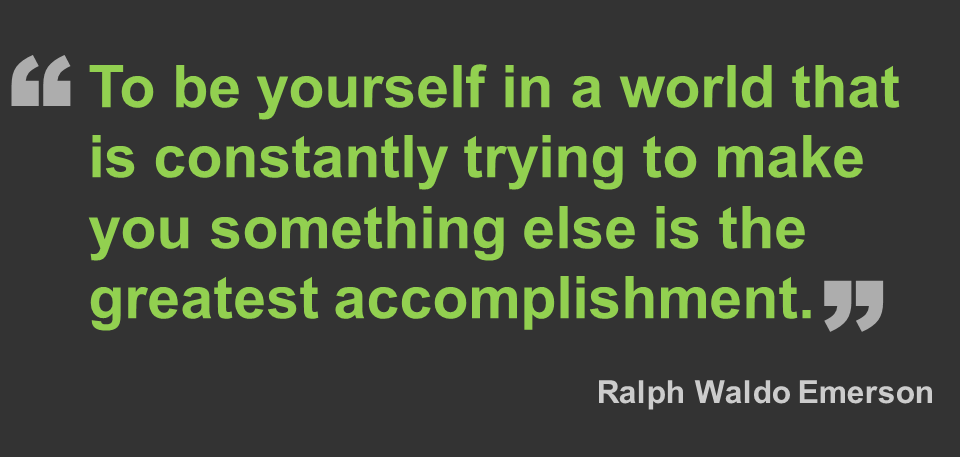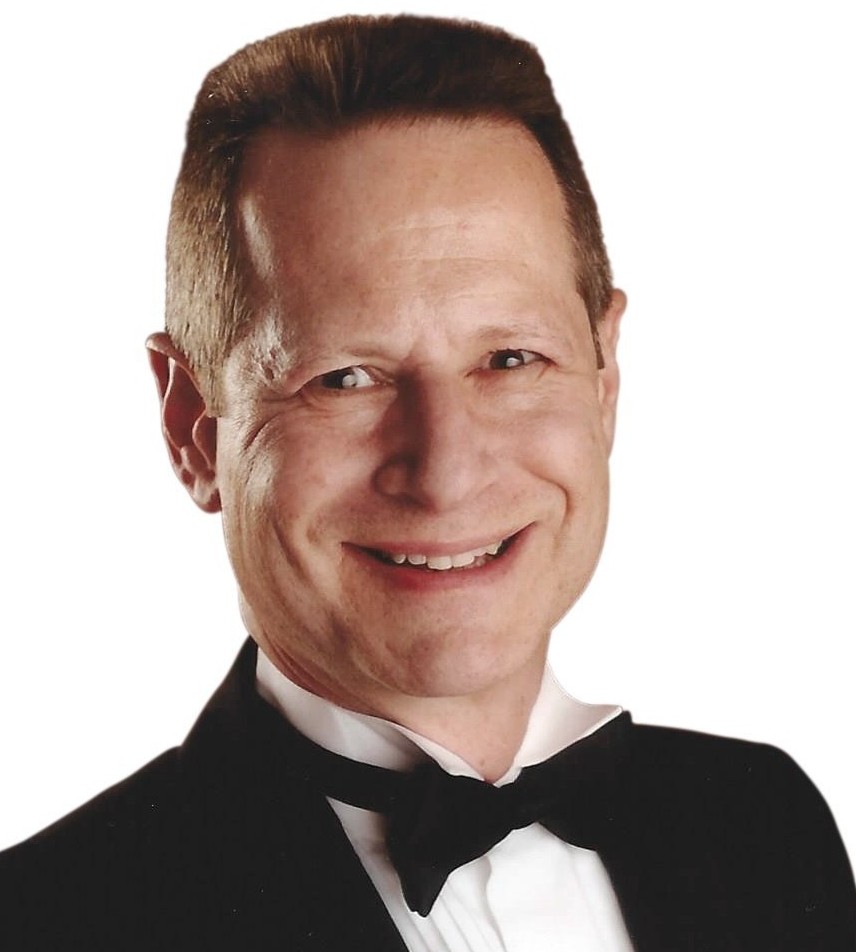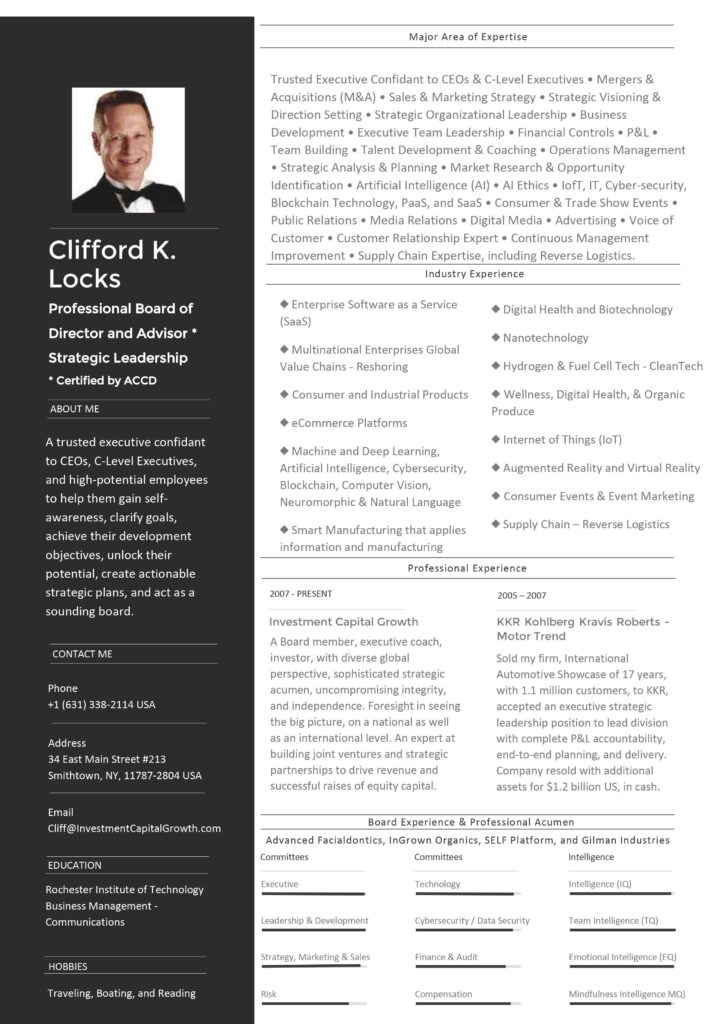Being authentic, creating a connection, and giving others a taste of who we are.

Early in the pandemic, as my family sheltered in place, someone found the old Clue boardgame in the attic. Soon this relic from our old world was brought into our new lives
As we rolled the dice and moved around the gameboard—was it Colonel Mustard in the library with a candlestick or Mrs. Peacock in the dining room with a rope—it struck me that these little rooms reflected what our pre-pandemic lives looked like. Everything was compartmentalized within its own walls—not just separate physical spaces, but figurative and emotional ones as well.
Some of those “rooms” were called commuting, going to meetings, traveling to see clients—the routines that put structure into our lives. Other “rooms” were attending weddings and parties, eating in the lunchroom with colleagues, and more. Then, seemingly overnight, our world shrank into one room with an open floorplan. As the walls came down, life went from segmentation to integration—professional lives melding with personal lives.
Now, as I look around, I see people everywhere are rethinking their space. It’s a time of introspection, resetting, and re-evaluating what we’re learning as we move forward. Some are finding ways to bring the old into the new—like long walks, family game nights, kids playing in the street—even beekeeping. Others are throwing out the old and unproductive to make room for the new and empowering.
Gregg Kvochak, Korn Ferry’s senior vice president of finance, used to spend five hours a day commuting. Being a numbers guy, Gregg calculated that, since the pandemic started, he’s regained about 720 hours—an entire month—and counting. Now he jogs five days a week and is eating healthier than ever.
It’s natural to be nostalgic for some of the old rooms, but we can’t get stuck in the past—locked in an attic full of dusty memories. Better to explore possibilities of the basement. Growing up in Kansas, I spent countless hours in basements—it’s where you went for shelter, to play ping pong, do arts and crafts, or just hang out. Not many people ever paneled and tricked out the attic or put a pool table up there. All that happened in the basement.
That’s what we’re doing now: converting our spaces, transforming our minds, to actualize a new reality. The insulation is being taken out of the isolation.
We know how to do this. As children, we “made believe” all the time—with whatever we had available to us—physically or in our imaginations. For me, it was on a dirt driveway with a net-less, rusty basketball hoop bolted to the side of the garage. Often, I would play a game with myself, winding down an imaginary clock in my head: Five, four… The last shot of the season-ending championship game. Our team is down by one point. Three, two… I leap high off the ground. One … The ball leaves my hands. The buzzer sounds. The ball arcs toward the basket and—swish—the winning shot!
Ironically, despite all that practice, I never had the opportunity to hit a game-winning shot—and if I ever did, I don’t know if I would have made it. But flash forward a couple of decades. My daughter Emily was a freshman on her high school basketball team. It was a big game, and her team was down by one point. With only seconds left, nobody wanted to take the last shot, so they kept passing the ball. When Emily got it, I knew what she was going to do—because we had practiced countless times in the driveway. She drove to the hoop and scored.
Sometimes in life, the ball is thrown our way—either by chance or by choice. But we have to take that shot. That’s where we are right now. We have to seize this moment to create a world with fewer walls and more windows for greater transparency and authenticity. Here are some thoughts:
· What would you do differently? Over the last couple of weeks, I must have asked 100 people the same question: If they knew last year that a pandemic was coming in 2020—if they had “perfect vision”—what would they have done differently? Overwhelmingly, and more often than not without any pause or hesitation, they said one of two things: (1) spending more time with friends and loved ones and (2) taking that big trip. No one mentioned the material things—or making some investment at the right time. It was all experiential—particularly around people and emotions. It’s an important perspective to keep, considering that we’re all bracing for what could be next—including a possible human hibernation in the Northern Hemisphere this winter. Even if we do end up sheltering in place because of a second wave of contagion, we need to connect with others.
· Demolition—or design. So how do we live in this new space? Do we revert to the attic or, ironically, do we travel to the basement? I reached out to some PhDs, psychologists, and researchers across our firm. Here’s what they had to say:
- · “It takes intentionality to migrate from segmentation to integration. But when we do, efficiency, harmony, purpose, and balance are all positive outcomes that can be realized,” says RJ Heckman, a Vice Chairman in our firm’s Consulting business.
- · “The pandemic is forcing people to create new structures to support themselves and how they behave in the world. If they don’t have structures, they can feel at the whims of circumstances and change,” says Janet Feldman, a Senior Client Partner in our firm’s CEO Succession Practice.
- · “For some people, the structures are about being disciplined with their time. Others may have to do that literally—separating workspace from living space,” says Signe Spencer, Client Research Partner at the Korn Ferry Institute.
These new structures shouldn’t wall us away—they should help us make connections. It’s the one choice we always have, even when we’re not in control. These days, we may have self-driving cars and the world at our fingertips via a 5-inch screen, but that doesn’t give us control. And we certainly can’t control time. But we can control what we do with our time.
· A walk in the park. Despite all the technological advancements of the past 50 years it still comes down to people. We want human connection. We need human connection. We thrive from human connection. We know from our research that affiliation—establishing and maintaining relationships—is one of the most important motivators of human behavior. Even during this time of social distance, we can’t stay locked behind our walls—virtual or otherwise—waiting for the vaccine. By tapping our people agility, we can find safe—and surprising—ways to interact and relate to each other. Sonamara Jeffreys, Korn Ferry’s Co-President of EMEA, based in London, described for me how we’ve been encouraging clients to go beyond Zoom and interview candidates in person—but outside the walls of offices and conference rooms. We’re going totally old school and old world, arranging for clients to meet with candidates while taking a walk in the park together. “Clients are telling us that it’s incredibly refreshing. They get much further down the road (literally) by walking and talking than if they had met via teleconference,” she said. You actually discover the “who” of somebody rather than simply the “what.” Her comments reminded me of when I interviewed people in the old days: I always met them in the lobby and brought them first into the office kitchen to get water or coffee. In familiar settings, we can more easily show our A.C.T.: being authentic, creating a connection, and giving others a taste of who we are.
How long we will occupy our open floorplan and what new rooms will emerge are anyone’s guess. Unlike the game of Clue, there won’t be just one little envelope at the end that contains the solution to the mystery. We each must find our own envelope. One thing is certain, though: after tearing down so many walls, we need to be careful about how many we put back up again.
OptimizeLife #CEO #CFO #COO #BoD #CXO #Professionalpedia #TeamBuilder #success #beyourself #goals #lifeisgood #Influencer #Successful #Business #WorkLife #OfficeLife #Work #Office #Inspiration #Marketing #Tips #Leadership #BusinessIntelligence #InvestmentCapitalGrowth
Contributing Author: Gary Burnison is CEO of Korn Ferry

Cliff Locks is a trusted confidant to CEOs, C-Level Exec, and high-potential employees to help them clarify goals, unlock their potential, and create actionable strategic plans.
Certified Professional Board of Director and Advisor.
Cliff Locks is a trusted confidant advisor available by Zoom and by phone to be your right-hand person, to make a significant contribution and impact.
As a Trusted Confidant Advisor, I support you, with your company’s strategic and annual operating plan, including marketing, sales, product development, supply chain, hiring policies, compensation, benefits, performance management, and succession planning.
Most successful leaders enjoy talking to someone about their experiences, which is why most develop a close relationship with a Trusted Confidant—a person with whom they feel free to share their thoughts and fears.
The most effective Executive find confidants who complement their strengths and sharpen their effectiveness. Bill Gates uses Steve Ballmer in this way; Warren Buffett turns to vice chairman Charlie Munger. In the end, both the Executive and their organizations benefit from these relationships.
As your trusted confidant, I’m always by your side. Holding your deepest secrets and never judging. Knows as much about you as you do, in complete confidence.
Often missing from the busy Executive’s life is a trusted person who understands the holistic complexity of their business and personal life.
I strive to provide solid financial, business, and family expertise and serve as a dispassionate sounding board, a role I call “Executive Confidant.”
By holding a safe place for the Executive to work on life path issues, I repeatedly see remarkable benefits as personal values become integrated with wealth and family decisions, enhancing a more meaningful life.
As an Executive Confidant, I welcome a confidential conversation about the most important issues facing the business leader, including:
- strategic planning
- operations, planning, and execution
- career transition
- retirement
- legacy
- kids and money
- marriage and divorce
- health concerns
- values and life purpose
- vacations
- mentoring & depth of the executive bench
- succession planning
When I do my job well, I facilitate positive action in the leader’s professional and personal life. This consistently has a positive benefit on impacting the people in their sphere of influence.
The job of an Executive can be lonely. For various reasons, confiding in colleagues, company associates, family members, or friends presents complications. Powerful individuals often isolate themselves as a reaction to their inability to find people they can confide in.
Abundance and isolation are not often discussed in the same context because the assumption is that abundance only solves problems and does not create them.
Material success does not make you invulnerable to the pitfalls of life – we need only to glance at the headlines to verify that.
Material success can create unique vulnerabilities that are often overlooked because, after all, the “problems” of the wealthy are not really problems.
The Executive Confidant can be particularly helpful when:
- aligning life priorities with the responsibilities of wealth
- wanting more meaning and purpose in life
- desiring a candid and experienced perspective
- usually, the answers are within us, but we can’t see them, or we are stuck. Clarity can come from skilled questioning and guided discovery. Being asked the right questions can be the first step in achieving ideal outcomes.
Who do you turn to when you need to find clarity? Who is your “Executive Confidant”?
Email me: [email protected] or Schedule a call: Cliff Locks
#BoardofDirectors #BoD #HR #executive #business #CXO #CEO #CFO #CIO #executive #success #work #follow #leadership #Engineering #corporate #office #entrepreneur #coaching #businessman #professional #excellence #development #motivation #InvestmentCapitalGrowth

